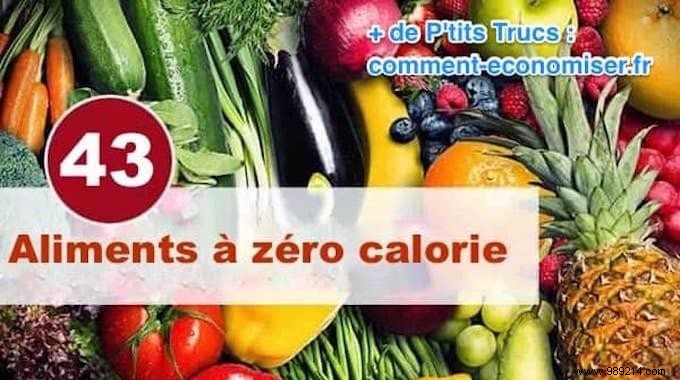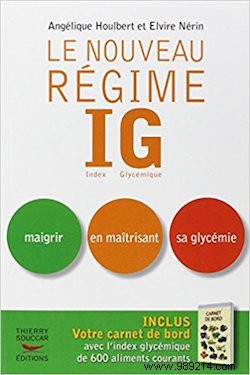
Besides water there is no food with zero or even negative calorie content.
The so-called "0 calorie" foods are in fact those that contain a very low calorie intake ...
...while having high levels of nutrients for your body.
The fruits and vegetables on this list have the great advantage of filling your stomach for a long time without leaving a feeling of hunger.
Discover the guide to the 43 "0 calorie" foods and choose the ones you want to add to your diet:

It is a food that provides little energy, but requires a lot to be digested. It is therefore perfect during a period of diet because the energy intake is minimal.
It is a unit of measurement invented in 1824 by Nicolas Clément. He determined that this represents the amount of energy needed to increase the temperature of the water by 1°C.
2500 calories / day for a man.
2000 calories/day for a woman.
These two figures are given as an indication, for an individual of average size and having normal daily activities. For an athlete or a person at rest, the intakes are to be adapted.
Exceeding 3500 calories per day for a standard person is to promote the production of dangerous fat mass in the body, which promotes obesity and disease.
These daily intakes must be respected to avoid disease, obesity, type 2 diabetes, cardiovascular problems and joint pain.
- Reduce the risk of developing type 2 diabetes.
- Reduce the risk of heart problems.
- Relieve the joints.
Fruit: apricot, peach, apple, honeydew melon, melon, watermelon, lemon, lime, grapefruit, clementine, mango, papaya, pineapple, blueberry, cranberry, raspberry, strawberry.
Vegetables: celery, asparagus, watercress, lettuce, endive, eggplant, beetroot, cucumber, zucchini, butternut squash, broccoli, cabbage, cauliflower, garlic, onion, green bean, carrot, turnip, mushroom, radish, spinach, tomato, seaweed.
Want to lose a few pounds? I recommend this book which has had a great success:
